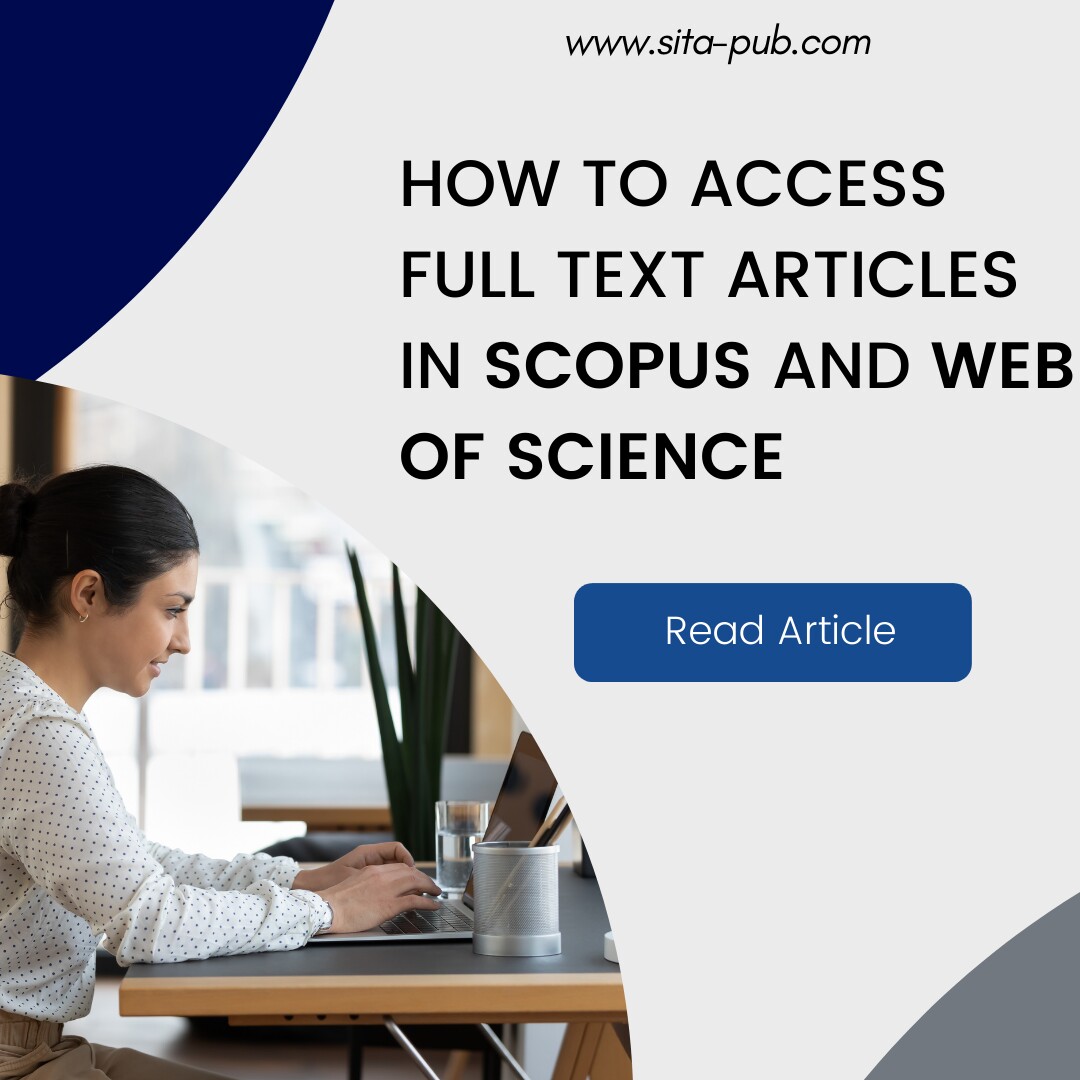How to Access Full Text Articles in Scopus and Web of Science


Accessing full text articles is crucial for researchers and students seeking to enhance their understanding of various topics. Here’s a straightforward guide on how to obtain articles from Scopus and Web of Science.

Most universities and research institutions provide access to Scopus and Web of Science. Here’s how to utilize it:
Visit Your Library's Website: Start by navigating to your institution's library page.
Locate the Databases Section: Look for a section that lists all available databases, typically found under headings like "Databases" or "Resources."
Select Scopus or Web of Science: Click on the appropriate database link. You may need to log in using your institutional credentials, such as your student or faculty ID and password.

Once logged in, you can search for articles directly:
Utilize the Search Bar: Enter keywords, article titles, or author names. Both databases offer advanced search options to refine your queries.
Narrow Your Results: Use filters to limit results by publication year, document type (e.g., article, review, conference paper), and subject area. This helps you locate the most relevant articles.

If your institution does not have access to a specific article:
Request Through Interlibrary Loan: Most libraries offer interlibrary loan services, enabling you to request articles that are not available in your institution’s collection.
Complete a Request Form: Provide details such as the article title, authors, and journal name. The library will attempt to obtain the article from another institution.

Some articles may be accessible directly from the journal's site:
Visit the Journal's Homepage: After finding an article in Scopus or Web of Science, check the journal’s website to see if the article is available.
Look for Open Access Options: Many journals publish certain articles as open access, allowing free access to readers.

Utilizing open access journals can significantly broaden your access:
Filter Your Search: In Scopus and Web of Science, you can filter results to show only open access articles, which are freely available.
Explore Repositories: Platforms like PubMed Central and DOAJ (Directory of Open Access Journals) provide access to a wide range of freely available articles.

Authors often share their work on various platforms:
Use ResearchGate and Academia.edu: Check these platforms where researchers frequently upload their articles. Following authors can help you stay updated on their latest work.
Contact Authors Directly: If you cannot find an article, consider reaching out to the author via email. Many authors are willing to share their work upon request.

Google Scholar can be a valuable tool for finding alternative access points:
Search for the Article Title: Often, authors will have uploaded preprints or versions of their work that are accessible for free.
Check "All Versions": When you find an article, click on "All versions" to see if there are any free copies available.

If you are off-campus:
Use Proxy Services: Many universities provide proxy access or VPN services, allowing you to log in as if you were on campus.
Connect to the VPN: Follow your institution’s instructions for setting up and connecting to the VPN for seamless access.

If you encounter difficulties:
Reach Out for Help: Contact your library’s help desk for assistance. Librarians are skilled at navigating databases and can guide you in finding the resources you need.
Attend Library Workshops: Many libraries offer workshops on database usage and research strategies, which can enhance your ability to access academic resources effectively.

Participating in research communities can provide additional access options:
Join Academic Networks: Platforms like Mendeley and Zotero allow you to connect with other researchers, share papers, and access a wider range of literature.
Participate in Online Forums: Engaging in academic forums and social media groups related to your field can lead to discovering resources and articles shared by other researchers.
Accessing full text articles in Scopus and Web of Science can be straightforward when you know the right approaches. By utilizing institutional resources, interlibrary loans, direct journal access, and open access options, you can effectively gather the necessary materials for your research. Don’t hesitate to reach out to authors or your library for support when needed. Happy researching!
If you have any questions, inquiries, or would like to learn more about our services, please don't hesitate to reach out to us. Our dedicated team is ready to assist you.